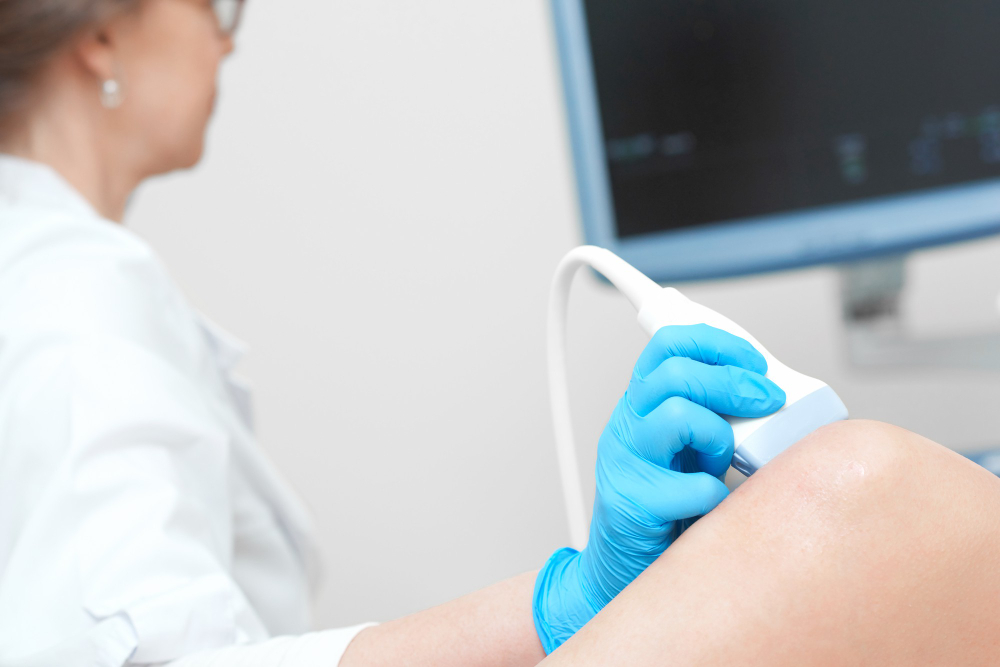Why USG Single Artery & Venous Doppler is Important
Early diagnosis of vascular diseases can prevent severe complications such as stroke, gangrene, or cardiac issues. USG Single Artery & Venous Doppler helps physicians:
-
Identify blood clots, arterial stenosis, and vascular blockages.
-
Monitor the healing process after vascular surgery or stent placement.
-
Evaluate for venous reflux in cases of leg swelling or varicose veins.
-
Assess blood supply in patients with chronic conditions like diabetes or hypertension.
The importance of this test lies in its ability to provide real-time imaging of blood flow with high accuracy and safety. It eliminates the need for invasive angiography in many cases, offering a quick, comfortable, and affordable diagnostic option at Diagnopein Karad.
Benefits of USG Single Artery & Venous Doppler
There are several reasons why patients choose USG Single Artery & Venous Doppler for vascular assessment:
-
Non-invasive and painless: No needles or injections are required.
-
No radiation exposure: Safe for patients of all ages, including pregnant women.
-
Accurate vascular diagnosis: Detects even minor abnormalities in vessel structure or flow.
-
Quick and convenient procedure: Offers same-day reporting at Diagnopein Karad.
-
Cost-effective: An affordable option compared to angiography or CT scans.
This test helps doctors create accurate treatment plans based on precise blood flow analysis, which is critical for managing cardiovascular health and preventing complications.
How the USG Single Artery & Venous Doppler Test is Performed
At Diagnopein Karad, the procedure is simple and performed by an expert sonologist:
-
The patient is asked to lie comfortably on an examination couch.
-
A water-based gel is applied to the skin over the target artery or vein.
-
The Doppler ultrasound probe is gently moved across the area to capture real-time blood flow images.
-
The device measures flow velocity, waveform, and direction to identify any narrowing or blockages.
-
Results are interpreted immediately, and a detailed report is provided the same day.
The test usually takes about 20 to 30 minutes, depending on the number of vessels assessed. No special preparation or fasting is required unless instructed otherwise by the physician.
Parameters Measured in USG Single Artery & Venous Doppler
The USG Single Artery & Venous Doppler evaluates several critical vascular parameters, including:
-
Peak systolic velocity (PSV) – measures the maximum blood flow speed during heart contraction.
-
End diastolic velocity (EDV) – indicates flow during heart relaxation.
-
Resistance index (RI) and pulsatility index (PI) – detect vessel obstruction or narrowing.
-
Flow direction and waveform pattern – identify reflux or turbulence.
-
Vessel diameter and wall condition – detect plaque buildup or thickening.
These quantitative measures help physicians diagnose vascular disorders accurately and monitor treatment outcomes over time.
Why Choose Diagnopein for USG Single Artery & Venous Doppler in Karad
-
Advanced color Doppler ultrasound machines for high-resolution imaging.
-
Skilled and certified sonologists with expertise in vascular diagnostics.
-
Clean, comfortable environment ensuring patient privacy and care.
-
Quick appointment scheduling and same-day report delivery.
-
Affordable pricing with consistent diagnostic accuracy.








